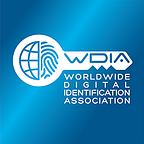The importance of trust: how did Covid-19 impact on the security and anonymity of the digital future?
Since the news about Covid-19 fled around the world, discussions about possible options for tracking contacts between people keep ramping up. This is intended to help prevent further spread of the virus. How suitable are methods being offered to us now, or is it worth thinking about more loyal alternatives?
In March, Microsoft founder Bill Gates shocked the public with his statement on chip-popping. The billionaire took part in the AMA session at the Reddit forum, where he answered a question about doing business in the era of social distance. In his view, mass vaccination to prevent COVID-19 would be an ideal opportunity to introduce a worldwide digital identifier. This system will store information about each person, including vaccination history, and will be used to provide access to other services.
Although Gates did not go into details, ‘digital certificates’ may be associated with biometric data or quantum dot tattoos. Despite that the billionaire has recently refuted this statement and urged readers not to believe the rumors, panic among millions of witnesses was sown, still causing online dissatisfaction and discussions on the subject. According to a Yahoo News poll, 28% of Americans believe in chipping.
Some governments are also trying to suppress the spread of the virus through digital technology. For example, in South Korea, movements of infected citizens are broadcast via public text messages. Israel has approved a law that allows tracking smartphones owned to those possible infected, while in the US, the government is negotiating with Google and Facebook about access to user location data.
But why do such measures that seem to be aimed at helping people cause negative emotions? Perhaps the main problem is in violation of confidentiality and freedom of action. A person may feel vulnerable when put under external control. In addition, the question of the safe storage of personal data, its abuse and prevention of information theft remains open.
Of course, in the current context, action is needed to defeat the pandemic. But, perhaps it is worth abandoning radical measures in favor of ones more understandable, loyal and reliable for society. Modern digital technologies open up a large number of possibilities, in addition to mass chipping or tracking applications. For example, using a single digital ID based on blockchain technologies, which will contain the necessary data, but at the same time provide the user with the right to choose: when, with whom and what information to share. This will not violate the boundaries of human freedom and can protect against the leak of personal information.
